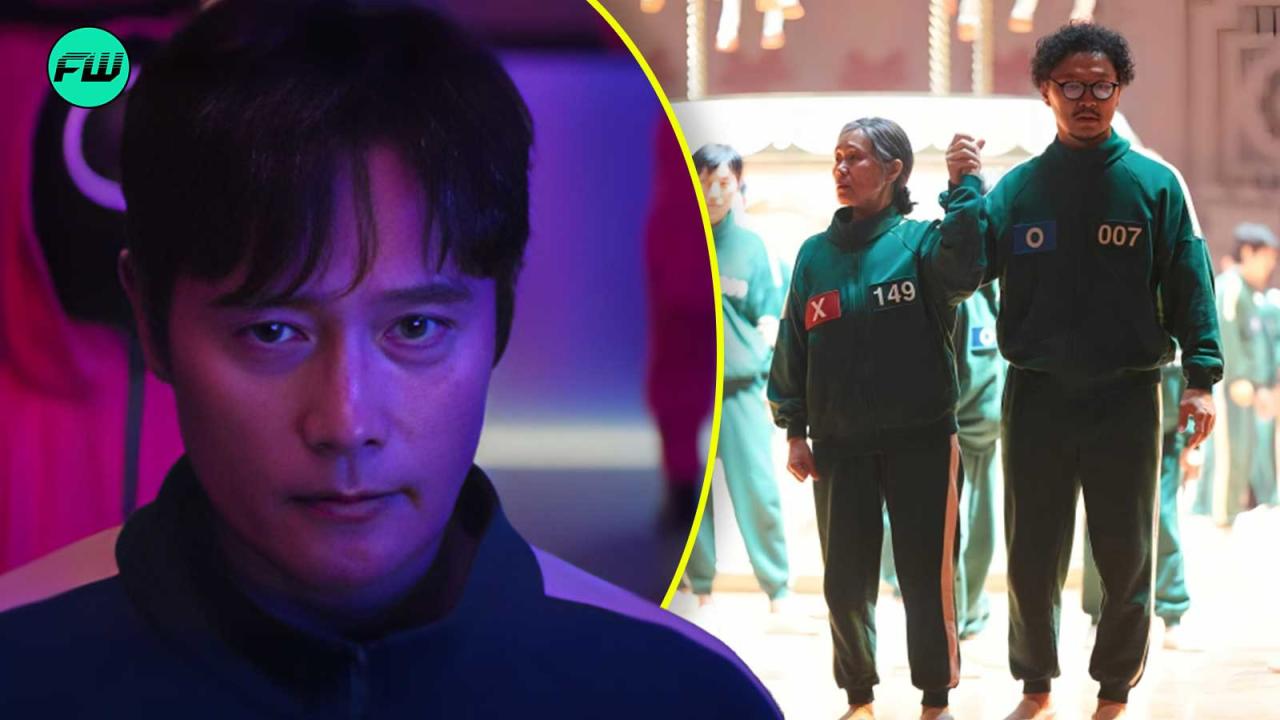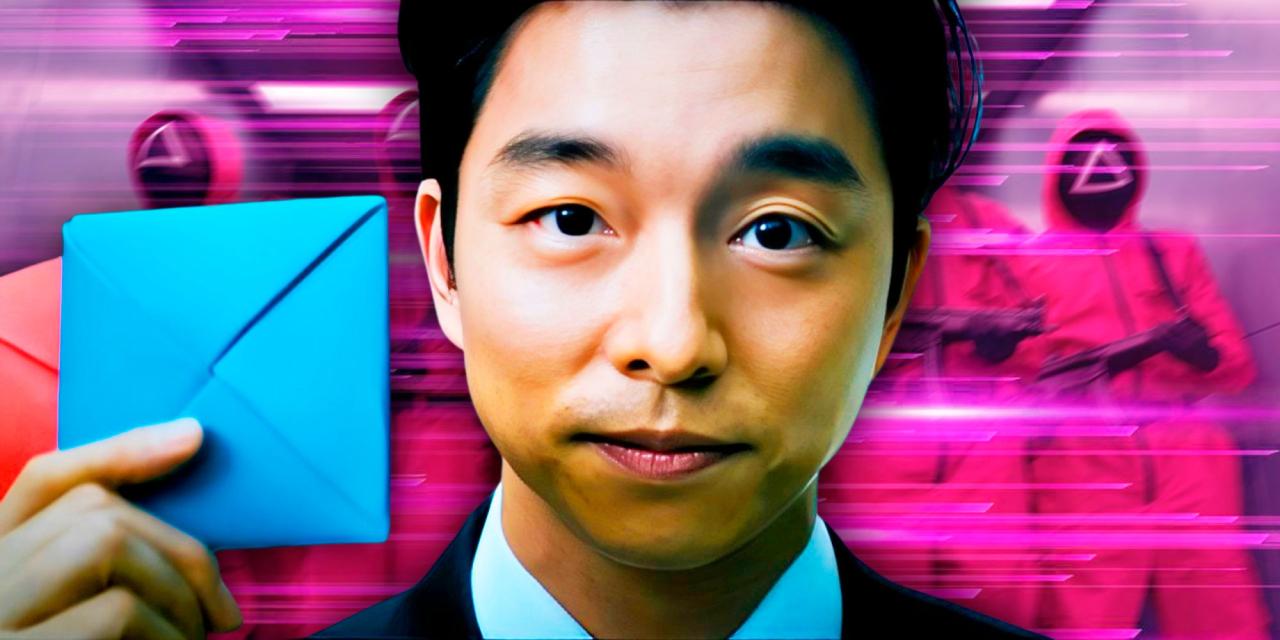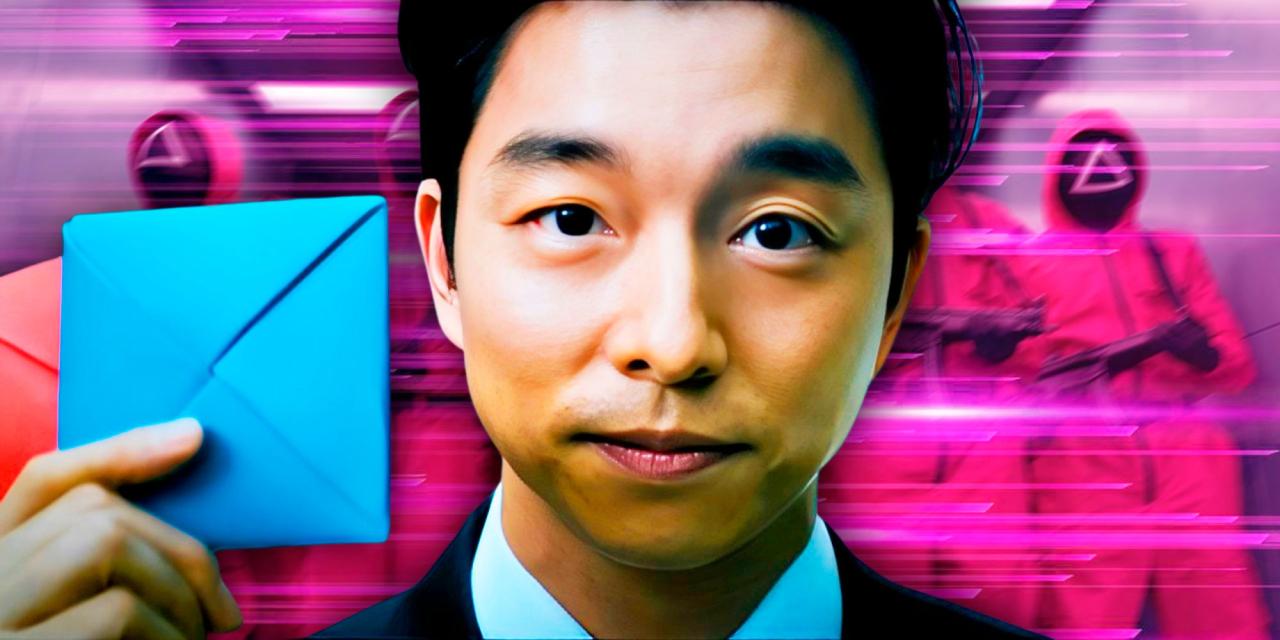Squid Game Histoire Vraie? Is the wildly popular South Korean series a mere work of fiction, or does it reflect harsh realities? This exploration delves into the socioeconomic pressures, exploitative practices, and stark class inequalities depicted in the show, comparing them to the actual conditions in South Korea and beyond. We’ll uncover the chilling parallels between the games and real-world struggles, examining the legal loopholes and societal stigmas that allow such vulnerabilities to exist.
So you’re wondering about “squid game histoire vraie”? While the show’s fictional, its themes of desperation and inequality resonate with real-world struggles. Want to explore a darker, possibly more realistic, take on the high-stakes games? Check out the details on vip 3 squid game for a different perspective. Ultimately, understanding the “squid game histoire vraie” requires considering the societal issues it reflects, even in its exaggerated format.
Get ready for a closer look at the inspiration behind the global phenomenon.
We’ll examine the crushing weight of debt in South Korea, exploring how economic policies and social pressures contribute to desperate situations. We’ll then analyze the show’s portrayal of class inequality, using real-life data to illustrate the vast wealth gap. Finally, we’ll consider the legal system’s response (or lack thereof) to such exploitative practices, both in the show and in reality.
The journey will reveal surprising connections between the fictional world of Squid Game and the complex realities of our own.
The Socioeconomic Realities Behind “Squid Game”

The global phenomenon of “Squid Game” transcended mere entertainment; it ignited crucial conversations about socioeconomic disparities, debt crises, and the exploitation of vulnerable populations. The show’s stark depiction of desperation and survival games resonated deeply with audiences worldwide, prompting a closer examination of the real-world issues it portrays.
The Reality of Debt in South Korea
South Korea’s high levels of personal debt are a complex issue stemming from a confluence of socioeconomic factors and government policies. A highly competitive education system and pressure to maintain a certain lifestyle contribute significantly to the problem. Many individuals find themselves burdened by student loans, housing costs, and credit card debt, often leading to a vicious cycle of borrowing to stay afloat.
Government policies, while aiming to stimulate economic growth, have sometimes inadvertently fueled household debt. Easy access to credit and low interest rates in the past encouraged borrowing, but when economic conditions shifted, many individuals struggled to repay their loans. This situation mirrors the desperation experienced by many “Squid Game” participants, who are driven to participate in the deadly games by crippling debt.
Examples of real-life situations mirroring the show’s narrative include individuals facing bankruptcy due to overwhelming debt, families struggling to make ends meet under the weight of multiple loans, and individuals resorting to desperate measures to escape financial ruin. The social stigma surrounding debt in South Korea further exacerbates the problem, often leading to isolation and shame for those struggling to repay their loans.
This societal pressure contributes to the desperation portrayed in “Squid Game,” where characters are willing to risk their lives to alleviate their financial burdens. The intense social stigma associated with debt often prevents individuals from seeking help or openly discussing their financial struggles, making the problem even more difficult to address.
So you’re wondering about “Squid Game histoire vraie”? While the show’s fictional, the desperation it depicts sadly reflects real-world struggles. Think about the scale of that desperation; it’s almost as breathtaking as the spectacle of the shanghai dragon drone show , a completely different kind of spectacle, but equally impressive in its own right. The contrast highlights how far removed the fictional game’s stakes are from the daily realities many face, fueling the show’s unsettling power.
Survival Games and Exploitation
The games in “Squid Game” are a grotesque exaggeration of real-world exploitative practices, highlighting the ethical implications of using desperation and poverty as tools for entertainment or profit. The show’s deadly competitions echo historical examples of forced labor, gladiatorial combat, and other forms of human exploitation where vulnerable individuals are coerced into participating in dangerous activities for the amusement or profit of others.
The ethical implications are profound. The show forces viewers to confront the moral consequences of prioritizing profit over human life and dignity. Exploiting vulnerable individuals for entertainment or profit is inherently unethical, and the show serves as a stark reminder of this reality. The psychological impact on participants and observers is significant, causing trauma, anxiety, and a loss of faith in societal structures.
Real-world scenarios that parallel the show include sweatshops, where workers are subjected to dangerous and unfair working conditions for minimal pay, and instances of human trafficking, where individuals are forced into exploitative labor or other forms of servitude. The psychological toll on participants and the normalization of such practices by society are equally disturbing parallels.
The Depiction of Class Inequality, Squid game histoire vraie
“Squid Game” powerfully portrays the stark class disparity prevalent in South Korean society. The show’s characters are clearly divided along socioeconomic lines, highlighting the vast gap between the wealthy elite and the struggling masses. This mirrors the real-world income inequality in South Korea, where a small percentage of the population holds a disproportionate amount of wealth.
Examples of social stratification in South Korea include unequal access to education, healthcare, and housing. These disparities create a system where opportunities are not equally distributed, perpetuating the cycle of poverty and wealth inequality. The show’s characters’ socioeconomic backgrounds directly reflect these real-world statistics.
| Character | Socioeconomic Background | Real-World Parallel | Statistic (Illustrative) |
|---|---|---|---|
| Gi-hun | Deeply indebted, struggling to support his family | Low-income worker burdened by debt | High household debt-to-income ratio |
| Sang-woo | Financially ruined businessman | Entrepreneur facing bankruptcy | High rate of small business failures |
| VIPs | Extremely wealthy, detached from the struggles of the players | Members of the top 1% | High Gini coefficient (income inequality) |
A visual representation could be a pyramid showing the vast disparity in wealth distribution. The base would represent the majority of the population with minimal wealth, gradually narrowing towards a small apex representing the extremely wealthy elite. This pyramid would visually demonstrate the stark imbalance reflected in both the show and South Korean society.
The Korean Legal System and its Limitations

The legal framework in South Korea addresses debt, gambling, and exploitation through various laws and regulations. However, the show highlights potential loopholes and shortcomings in the system that could allow similar events to occur. The complexities of debt recovery, the regulation of gambling, and the protection of vulnerable individuals from exploitation are key areas of concern.
- Debt: The legal system provides mechanisms for debt collection, but the burden on individuals facing overwhelming debt can be immense, leaving them vulnerable to exploitation.
- Gambling: While illegal gambling is punishable by law, the scale and sophistication of the games in “Squid Game” suggest a potential failure to adequately regulate or monitor such activities.
- Exploitation: Laws exist to protect individuals from exploitation, but enforcement and prevention remain challenging, particularly when dealing with organized crime or clandestine operations.
A comparison of the fictional legal system in “Squid Game” with the actual South Korean legal system reveals significant differences. While the show depicts a complete absence of legal oversight and protection for the participants, the actual South Korean legal system, although imperfect, does offer some mechanisms for addressing debt, gambling, and exploitation, albeit with limitations.
The Global Phenomenon of “Squid Game”

The global popularity of “Squid Game” stemmed from its compelling narrative, relatable characters, and its exploration of universal themes such as economic inequality and social injustice. The show sparked widespread discussions on social and economic issues, prompting debates on topics ranging from income inequality and debt crises to the ethics of exploitation and the power dynamics between different social classes.
Reactions to “Squid Game” varied across different countries, reflecting their own socioeconomic contexts. In countries with high levels of income inequality and debt, the show’s themes resonated particularly strongly, while in others, the focus might have been on the suspenseful narrative or the cultural aspects of the series. The show’s universal themes, however, transcended geographical boundaries, leading to global conversations about important social and economic issues.
The show’s ability to resonate with audiences globally underscores the universality of the issues it addresses. The struggles faced by the characters, although set within a specific South Korean context, tap into anxieties and concerns shared by individuals across diverse cultures and socioeconomic backgrounds. The show served as a powerful catalyst for global dialogues on social justice and economic inequality.
Closing Notes: Squid Game Histoire Vraie

Squid Game Histoire Vraie ultimately reveals a disturbing truth: while the show’s depiction of deadly games is fictional, the desperation and inequality fueling such narratives are painfully real. The global popularity of the series highlights a universal anxiety about economic precarity and social injustice. By examining the show’s themes through the lens of South Korean society and global trends, we gain a deeper understanding of the systemic issues that continue to impact vulnerable populations worldwide.
So you’re wondering about “squid game histoire vraie,” right? It’s a popular question, since the show’s brutal games feel intense. Many people want to know if there’s any truth behind the show’s premise, and you can check out some information exploring this very question by visiting this site: squid game histoire vraie. Ultimately, understanding the “squid game histoire vraie” debate helps you appreciate the show’s themes even more.
The games may be fictional, but the stakes are very real.
Questions and Answers
Was Squid Game inspired by a true story?
While there’s no single true story mirroring the entire plot, Squid Game draws inspiration from various real-world issues in South Korea, particularly concerning debt, poverty, and social inequality.
Are there similar real-life games?
While not identical, historical and contemporary examples of exploitative practices and dangerous competitions for survival exist, although usually not as overtly deadly as in the show. Think of certain forms of extreme poverty-driven labor or survival-based reality TV shows.
How did Squid Game become so popular?
Its intense plot, relatable themes of desperation and inequality, and masterful storytelling resonated with a global audience grappling with similar economic anxieties and social injustices. The show’s unique visual style also contributed significantly to its appeal.
